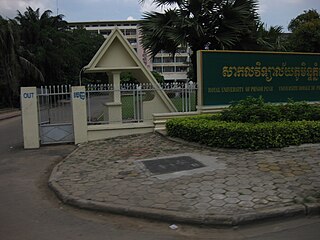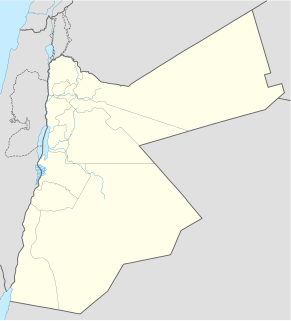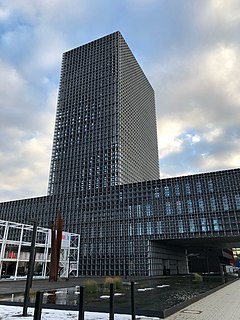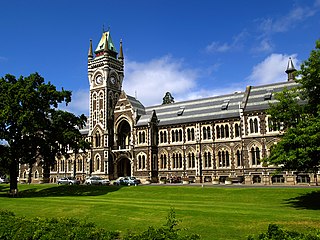 W
WThe University of Andorra is a public institution of higher education created in 1988, and the first university in Andorra. The university consists of the College of Health and Education Sciences, the College of Business and Technology, and the College of eLearning and Lifelong Learning.
 W
WThis is a list of public and private Argentine universities, grouped by region and type. Public universities are mostly state funded, while private universities require some form of tuition payment.
 W
WThere are 42 universities in Australia: 41 Australian universities and 2 international private universities. The Commonwealth Higher Education Support Act 2003 sets out three groups of Australian higher education providers: universities, other self-accrediting higher education institutions, and state and territory accredited higher education institutions.
 W
W W
WThis is a list of universities in Belgium. In Belgium, which is a federal state, the constitution attributes legislative power over higher education to the Communities. The Dutch-speaking Flemish Community, the French Community and the German Community thus determine which institutes of higher education they organise or recognise, and which diplomas may be legally issued by these institutes. Below is a list of recognised institutes of higher education in Belgium sorted by the responsible Community.
 W
WUniversidade Estadual do Maranhão is a public state university in the state of Maranhão, Brazil. It was founded on March 25, 1987 and is based in São Luís. In addition to the Universidade Federal do Maranhão (UFMA), it was the second university in the state. In September 2016, part of it was dismembered for creation of a third, the newly founded Universidade Estadual da Região Tocantina do Maranhão (UEMASUL). With more than 20 thousand students, the institution has 22 campuses and 25 university centers. In the university ranking, it ranks 157th in Brazil. The university rector is Gustavo Pereira da Costa.
 W
WThis is a list of universities in Cambodia.
 W
WThis is a list of colleges in Canada. Colleges are distinct from universities in Canada as they are typically not degree-granting institutions, though some may be enabled by provincial legislation to grant degrees using joint programs with universities or by permission of the provincial Minister of Education.
 W
WUniversities in Canada are established and operate under provincial and territorial government charters, except in one case directed by First Nations bands and in another by federal legislation. Most public universities in the country are members of Universities Canada. The title "university" is protected under federal regulation.
 W
WThis is a list of universities and other higher education institutions in Chile, namely Professional Institutes (IP) and Technical Training Centers (CFT).
 W
WThis article is a non-comprehensive list of universities in China, which is defined as the People's Republic of China (PRC) in mainland China and Hong Kong and Macau SARs.
 W
WThis is a list of universities in Colombia. The Colombian higher education system is composed of technical institutes focused on vocational education, university institutions focused on technological education, and universities focused on undergraduate and postgraduate education. The country has both public and private universities. Most public universities conform to the State University System, and most departments have at least one public university. Several private universities are affiliated to the Roman Catholic Church or are nonsectarian.
 W
WThis is a list of universities in the Democratic Republic of the Congo.
 W
WThis is a list of the universities in Germany, of which there are about seventy. The list also includes German Technische Universitäten, which have official and full university status, but usually focus on engineering and the natural sciences rather than covering the whole spectrum of academic disciplines. Some twenty German universities rank among top 200 universities in world Highest ranked universities in Germany include some research oriented universities for MS, MBA, medical and engineering.
 W
WThis is a list of universities in Ghana. For the purposes of this list, colleges and universities are defined as accredited, degree-granting, tertiary-level institutions. Small universities are affiliated to larger established public institutions, and most higher education institutions are named "university college". The country's colleges which are incorporated with universities are listed as "university college". The country's "polytechnics" are also listed.
 W
WUniversities in Hungary have generally been instituted by Act of Parliament under the Higher Education Act. For new public universities and private universities, approval is required from the Ministry of responsible for the education and later from the Hungarian National Assembly. The Hungarian public higher education system includes universities and other higher education institutes, that provide both education curricula and related degrees up to doctoral degree and also contribute to research activities. In general, public Hungarian universities don't charge tuition fees.
 W
WThird-level education in the Republic of Ireland includes all education after second-level, encompassing higher education in universities and colleges and further education on Post Leaving Certificate (PLC) and other courses. The degree-awarding authorities approved by the Government of Ireland, which can grant awards at all academic levels, are University of Dublin, National University of Ireland, Royal College of Surgeons in Ireland, Dublin City University, Technological University Dublin, Quality and Qualifications Ireland, St. Patrick's College, Maynooth, and University of Limerick. The King's Inns of Dublin has a limited role in education specialising in the preparation of candidates for the degree of barrister-at-law to practice as barristers. Medical schools in Ireland also have particular regulation. There were seven establishments of higher education within Ireland ranked among the top 500 universities worldwide by the Times Higher Education Supplement in 2008.
 W
WThis is a list of degree-granting universities and institutions in the Hashemite Kingdom of Jordan sorted alphabetically by the governorate to which each university belongs. Jordan has both private and public universities, many of which are supported by the government of Jordan and their respective provinces. Jordan has a fairly large number of universities for its size, and welcomes students of all nationalities. In addition, there are 50 community colleges in Jordan that are not listed here.
 W
WThis is a list of universities and colleges in Kenya. Kenya has a number of universities and other institutions of higher learning. There are 30 public universities, 30 chartered private universities and 30 universities with Letter of Interim Authority (LIA).
 W
WThere are more than 300 colleges and universities in North Korea. Universities and colleges in North Korea are classified into central class and local colleges. Also, they can be classified into social, special, and military colleges. Special colleges were established with the purpose to raise top executives. Students who have just graduated from high school cannot enter special colleges without any experience in industrial or cooperative farm careers. In North Korea, there are only two universities such as Kim Il Sung University and Kim Chaek University of Technology. All the others are colleges.
 W
WThe University of Luxembourg is a public research university in Luxembourg.
 W
WThis is a list of tertiary institutions in Mauritius.
 W
WThis is a list of universities in Moldova.
 W
WFounded in 1986, the International University of Monaco (IUM) is located in the Principality of Monaco. It offers undergraduate and graduate degrees in business specialized in finance, marketing, sport business management and international management, taught in English. Bachelor program at this university consists of 3 academic years. Masters program consists of 1 academic year. Prior to 2002, it was known as the University of Southern Europe.
 W
WThis is a list of the universities in New Zealand, of which there are eight. Many of the universities are descended from the former University of New Zealand, a federal university that existed from 1870 to 1961. In 2013, the universities provided tertiary education to over 180,000 students or 132,553 equivalent full-time students (EFTS).
 W
WThe oldest institution of higher education in Nicaragua is the National Autonomous University of Nicaragua, which was founded in León in 1812, during the Spanish colonial period. In Nicaragua, there are ten core public and private non-profit universities that receive state funding, and these constitute the members of the National Council of Universities. This body is responsible for strategic planning for higher education in Nicaragua, and it is also the organization that provide accreditation to other universities.
 W
WHigher education in Pakistan is the systematic process of students continuing their education beyond secondary school, learned societies and two-year colleges. The governance of higher education is maintained under the Higher Education Commission (Pakistan) (HEC) which oversees the financial funding, research outputs and teaching quality in the country. In Pakistan, the higher education system includes the public, private and military universities, all accredited by the HEC. Since independence, new universities have expanded throughout the country with support provided by the University Grants Commission (UGC), which had been an autonomous institution of recognizing universities until 2002 when it was preceded by the Higher Education Commission. Pakistan produces about 445,000 university graduates and 10,000 computer science graduates annually. Following public and private higher education institutions are active in the country:
 W
WThis is a list of universities in Poland. In total, there are approximately 457 universities and collegiate-level institutions of higher education in Poland, including 131 government-funded and 326 privately owned universities, with almost 2 million enrolled students as of 2010. According to the March 18, 2011 Act of the Polish Parliament, the universities are divided into categories based on their legal status and level of authorization.
 W
WThis is a list of universities in South Africa. For the purposes of this list, colleges and universities are defined as accredited, degree-granting, post-secondary institutions. As at September 2019 only South African public degree-granting institutions may call themselves a "university", whereas other accredited private for-profit or not-for-profit degree-granting institutions tend to call themselves colleges, institutes or business schools.
 W
WAnton de Kom University is the only university in Suriname. It is located in the capital, Paramaribo, and named for Anton de Kom, an anti-colonialist activist who was killed by the Nazis while in exile in the Netherlands.
 W
WThis list of universities in Switzerland lists all public and private higher education institutions accredited and coordinated according the Federal Act on Funding and Coordination of the Swiss Higher Education Sector.
 W
WThis is a list of universities and colleges in Tanzania. The country has 43 universities. Universities and University Colleges are regulated by the Tanzania Commission for Universities.
 W
WVenezuela has a wide array of universities, offering courses in a broad variety of subjects, spread between a total 23 public and 24 private universities located across several states. As a result of a Royal Decree signed by Philip V of Spain, the Central University of Venezuela—the country's oldest—was founded in 1721 as "Universidad Real y Pontificia de Caracas". The campus was originally at the now-known "Palacio de las Academias" but, in 1944, president Isaías Medina Angarita relocated it to the University City of Caracas.